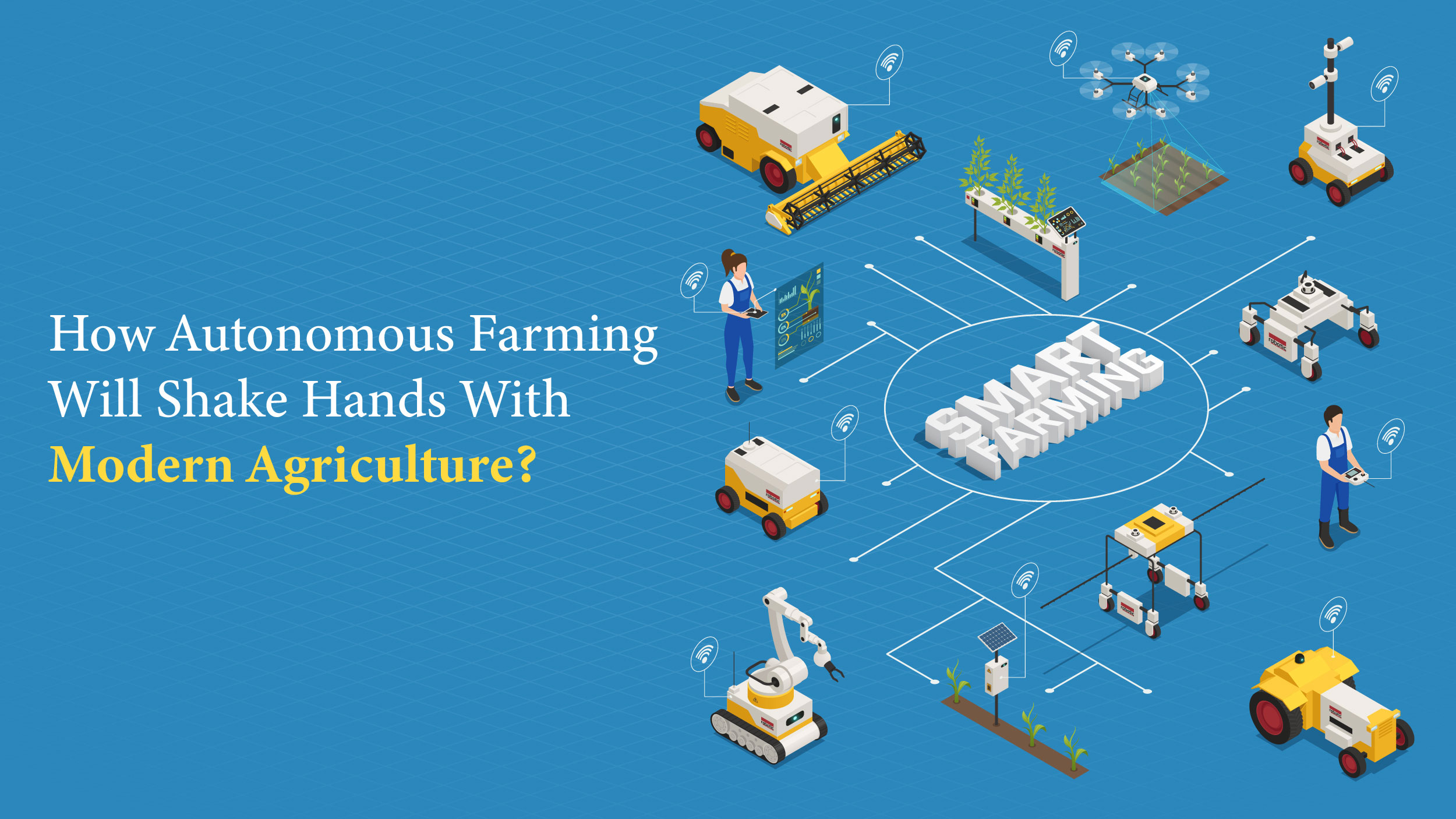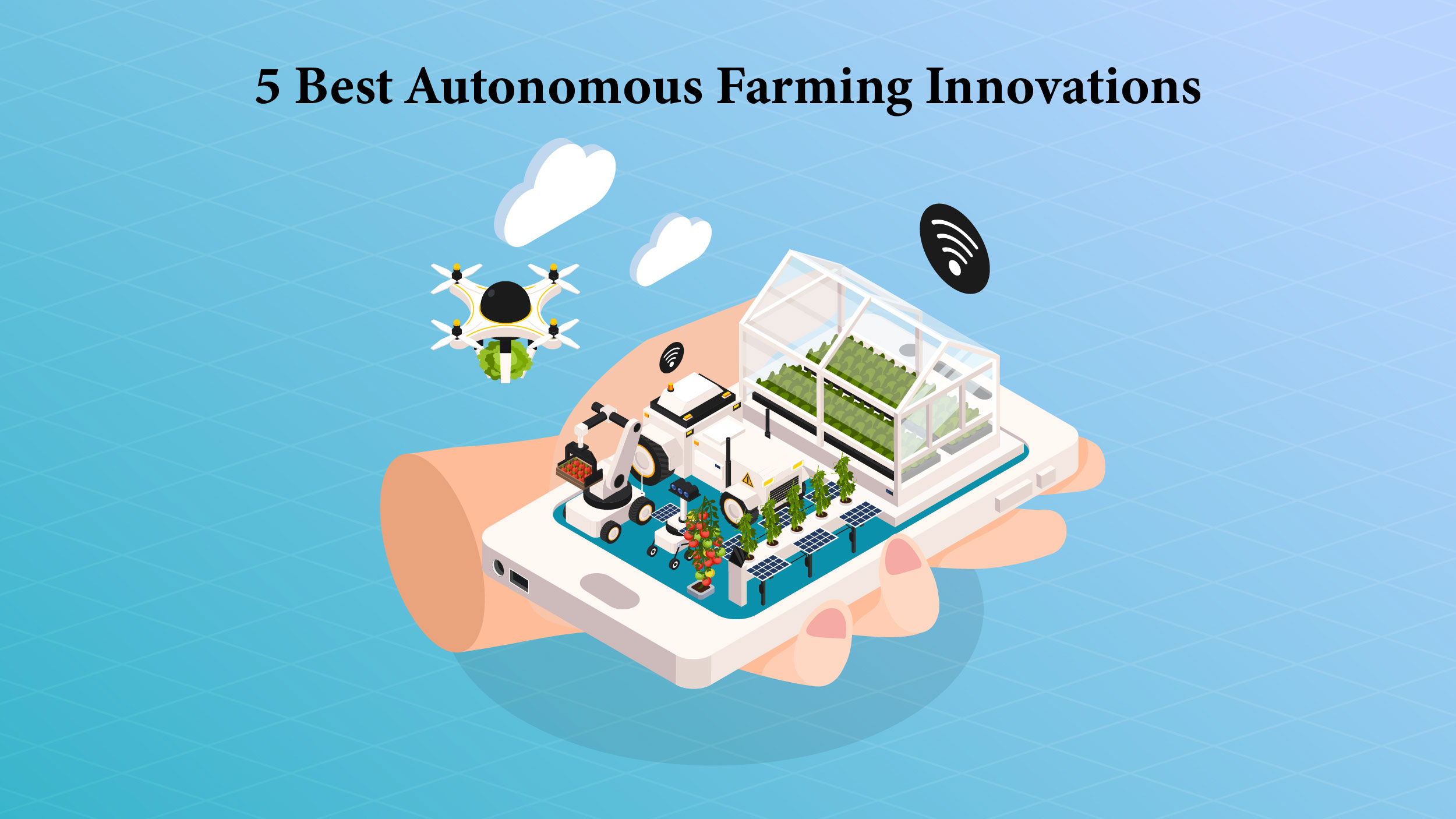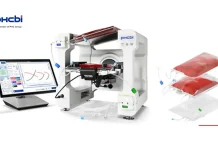The agriculture industry has changed drastically in the last few decades, and autonomous farming is yet another step in its digital transformation. The demand for crops and livestock will soon rise due to the increase in the global population, estimated at 8 billion in mid-November 2022, according to the United Nations. There will surely be a need for constant innovation to feed the world. Hence, the development of tools and advanced technology will be the primary demand in the agricultural sector.
Autonomous farming uses robotics and automated machines to enhance productivity and sustainability which can combat modern difficulties in farming. Self-driving tractors, soil sensors, and specialized drones are examples of autonomous farming equipment that is intended to carry out duties without requiring human interaction.
Autonomous farming will help increase the productivity and sustainability of crops that efficiently manage labor shortage issues. There have been multiple innovations in autonomous farming that have boosted growth in the Agritech sector. These innovations are fueled by the need to produce large amounts of food for the ever-growing world population.
How Autonomous Farming Will Shake Hands With Modern Agriculture?

Modern agriculture will be revolutionized by autonomous farming as this will provide farmers with a more affordable and effective approach to performing their tasks. The demand for advanced innovative technologies that can perform everything from crop monitoring to spraying for both small and large-scale farms will create a revolution in the farming sector. Seed-planting robots, and other autonomous agricultural equipment will speed up the work, boosting productivity and reducing expenses. For instance, SwarmFarm Robotics, which is an agricultural machinery manufacturing company, has raised $8.3 million in a series A round for its autonomous farming platform. The company’s agenda is to use the funds for its development of the autonomous farming hardware-software platform. Autonomous farming will reduce losses from pests and illnesses, save water, fertilizer, and pesticides, and encourage sustainable agriculture. This scenario will contribute to global food security drastically.
5 Best Autonomous Farming Innovations
Here are the 5 best autonomous farming innovations that are changing the face of the agriculture sector.
Autonomous Tractors
Autonomous tractors or Driverless tractors are highly useful for carrying out labor-intensive farming and help in reducing manual efforts. The availability of autonomous driverless tractors saves a lot of time for farmers and allows them to do other work. Driverless tractors are the best way to increase crop yields and reduce costs. This is possible because these automated tractors can work in all weather conditions and harvest 24/7.
Drones for Agriculture
Drones that fall under the aerial farm management category have generously added value to autonomous farming. Drones are also known as unmanned aerial vehicles (UAVs). These UAVs can be combined with the available farming equipment options for farmers. Drones can successfully capture field images with cameras fitted to them and help farmers inspect crops to identify crop infestations. Apart from identifying crop infestations, drones can also be used to spray pesticides. Additionally, drones can monitor multiple robotic vehicles and enhance both productivity and security. For instance, John Deere and Volocopter created a 9.2-meter drone that can fly for up to 30 minutes and has an electric drive and removable lithium-ion batteries. This drone has crop sprayers and weed scanners to precisely detect and eradicate weeds, which is revolutionary.

Seed-planting Robots
Seed-planting robots can significantly help in improving productivity. As the process of seed sowing requires extensive human effort and it is also very time-consuming, implementing seed-planting robots can just save farmers a lot of time, money, and effort. These autonomous devices can plant seeds in the best agriculturally appropriate positions and eliminate human efforts. The advantages of seed-plant robots are that, they are fully automatic, can conduct efficient and fast farming and the robots are portable.
Precision Agriculture Technology
Precision agriculture technology is best used to understand the environment and ecosystem conditions. It is also highly beneficial for improving crop management and maximizing yields in comparatively less time.
Precision agriculture enables farmers to create a dynamic route for self-driving tractors and other machinery to follow by utilizing GPS, machine learning, and other cutting-edge technologies. It provides the machines to methodically and precisely carry out numerous difficult operations in the field, including tilling, planting, and spraying. By utilizing precision agriculture technologies, there will be a boost in the production of crops, lower labor expenses, and enhanced task accuracy. Precision farming can help farmers increase the number of hours they can work on their farms each day and lessen farm labor difficulties.
5G in Agriculture
5G is all set to transform agriculture as more and more companies are developing smart farming systems that can benefit from technologies like 5G, AI, edge computing, etc. 5G can allow the unhindered use of customized and data-driven approaches for farm management instead of depending on outdated methods. It can also be combined with other technologies to make farming more explicit.
Does Autonomous Farming Have A Promising Future?
The demand for food is growing in parallel with the world population, and the threat caused by climate change is becoming more evident. Farmers are utilizing the most advanced autonomous farming technology to satisfy this demand, enabling them to maintain their earnings and deliver high-quality goods. Despite the unexpected challenges of the field, farmers can boost their productivity and effectiveness by using autonomous agricultural equipment like seed-planting robots and much more.
Conclusion
Agriculture is an industry that is not exposed to advanced technology and is assumed to use conventional ways. Most farmers in the world are ignorant of technology and autonomous farming which can transform the agricultural industry. Like other sectors, numerous developments have already been made in the farming sector to speed up the work of farmers.
The technologies used in autonomous farming have reduced the farmers’ downtime by becoming more cost-effective. A lot of labor’s energy will be saved in this process, improving the quality of the work. Farmers can be efficient while overcoming the unpredictability of the field’s obstacles by using autonomous agricultural equipment. The future of autonomous farming is bright, as it addresses all the requirements of farmers and their farms.






